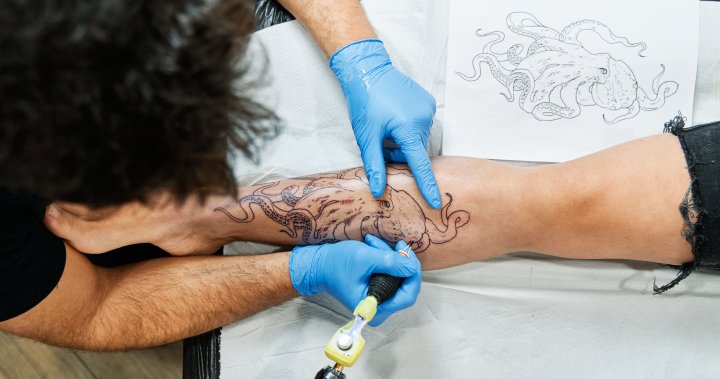Victor Sharrah never had a problem with his vision in the first 55 years of his life.
But that all changed four years ago, when he suddenly went from seeing the normal faces to the faces of demons.
On a life-altering day in November of 2020, Sharrah says that, all of a sudden, any human face he looked at appeared grotesquely distorted.
“I just woke up and was sitting on the couch watching TV when my roommate came into the room, and (looking at him) I’m like, ‘What am I seeing?’ Then his girlfriend walked in and her face was the same,” Sharrah told CNN.
“I tried to explain to my roommate what I was seeing, and he thought I was nuts. Then I went outside and all of the faces of people I saw were distorted and still are.”
Sharrah said human faces now appear stretched out and widened, with pointy ears and deep grooves carved into their skin.
But it turns out there’s a scientific explanation behind what he’s seeing.
Called prosopometamorphopsia (PMO), it’s a disorder that makes some people think they’re seeing “demon-like” faces everywhere.

On a life-altering day in November of 2020, Victor Sharrah says that, all of a sudden, any human face he looked at appeared grotesquely distorted.
The Lancet
Sharrah’s case was recently reviewed in The Lancet. According to the publication’s study, “the patient stated that the distortions — severely stretched features of the face, with deep grooves on the forehead, cheeks and chin — were present on every person’s face he encountered, but he reported no distortions when looking at objects, such as houses or cars.”
The email you need for the day’s
top news stories from Canada and around the world.
The email you need for the day’s
top news stories from Canada and around the world.
“The patient said that even though faces were distorted, he was still able to recognize who they were,” the study continued.
Also, the study found that Sharrah’s distortions only appeared when looked at people in person – not when he looked at humans in a photograph or on a television or computer screen.
With the help of researchers at Dartmouth College, he was able to recreate the faces he sees through digital representation. The images were published in The Lancet last week.

Sharrah said the distortion on the faces changes as they move their head or talk.
The Lancet
To create the images, researchers asked him to describe the differences between a photograph of a person and the real-life person standing in front of him.
PMO, the study says, is exceedingly rare, with only 100 published case reports. Researchers think it might be brought on by dysfunction in the area of the brain that handles facial processing, but they aren’t sure what exactly causes the condition.
Some cases have been linked to epilepsy, head traumas, stroke or migraines, while others have been observed in people with structural change to the brain.
In Sarrah’s case, researchers noted two possible triggers. First, he suffered a significant head injury at the age of 43 and, secondly, he had carbon monoxide poisoning four months before his PMO symptoms began.
An MRI scan also showed a non-cancerous lesion on the left side of his brain.
The study’s lead author, Antônio Mello, a Ph.D. student who works in Dartmouth’s Social Perception Lab, told NBC News that they’ve had other people with PMO reach out to the lab, but that their reported symptoms differ significantly.
Some people “have seen face distortions since they remember, since they were a child,” Mello said. “For them at least, it’s impossible to find a single event that was responsible.”
A review of other PMO literature found that some patients have reported a “funhouse mirror” effect, where the entire face of another person appears distorted. Other reported seeing dragon or fish-like faces replace human faces.
Another, after having a tumour removed from his brain, described half of his doctor’s face in which the “eye became a ghastly staring hole, cheek bone a cavity; he had teeth on the upper lip, often had two ears.”
Dr. Brad Duchaine, a senior author on the Lancet case and professor of psychological and brain sciences at Dartmouth College, told CNN he has started a website to solicit information from others who might be experiencing similar symptoms. He said they’ve heard from at least an additional 80 people.
“We’re finding that people from around the world are reporting the same symptoms without knowing anything about others with the condition.”
Because the condition is so rare, misunderstood patients are sometimes diagnosed with schizophrenia or other hallucinatory conditions. Sometimes they are institutionalized or put on anti-psychotic medications.
Sharrah told CNN he hopes his diagnosis can help other people with the disorder.
“I almost had myself committed to a mental hospital,” he told the outlet. “How many other people are institutionalized and being put on anti-psychotics when they’re not psychotic?”
© 2024 Global News, a division of Corus Entertainment Inc.




